All three of today’s readings are about strength and new courage. Strength to continue, strength to make a new beginning, especially if a long period of setback, of failure or uncertainty has preceded. And finding the strength to help others. How do you do that as a human being? And how does this work as a group, for example as a church or denomination?
This particular part of the book of Isaiah probably dates from the time of the Babylonian exile. But it also looks back to the Assyrian exile of the northern empire of the 10 tribes. What has Israel been through? There is little that they have not experienced. Slavery in Egypt, a spectacular Exodus, 40 years of wandering in the desert, wars, idolatry, dictators as kings, twice captivity. A large part of the people never even returned after the first exile. The faithful and those who stayed behind must have wondered every day whether things would ever improve.
And then Isaiah suddenly brings that comforting message for “Jerusalem.” But to understand it properly, we have to go back to the time of the first kings, Saul and David. The people had asked for a king and God, speaking via the prophet Samuel, had advised against it. But God still respected their wish, let’s say this referendum, and a succession of kings follows. A referendum does not always provide the best solution, but it is perhaps the best way to learn what works and what does not. Moreover, the people are taken seriously in this way.
However, a king would be of little use if he is not allowed to take important decisions or to receive any responsibility. And so David is even permitted to determine where the spiritual center of the kingdom will be. Let this sink in for a moment. The God who prescribed everything so minutely in the Torah, now suddenly gives his anointed one a lot of freedom. David can determine where a temple will be built for the Lord. He chooses the city that, as a final piece of the promised land, has been conquered on the Jebusites. This is why Rabbi Yitzchak Levi speaks of 3 phases in the selection of the site of the temple. The first phase, he says, was clearly a human initiative. Quite frankly, this surprised me as well, when I studied it. It certainly highlights the freedom that God gives us. Perhaps we can compare it to the freedom that God gave Adam to name the animals in Eden.
Jerusalem is often called the city of gold. Think of the song Jerushalaim sjel zahaav. Or also the city of God. But let us not forget that God chose this city out of respect for the choice of David, his anointed one. There are no indications in the Bible that God controlled David in any way. David was not used as a will-less instrument to carry out a pre-conceived plan of God. Previously, God did use a prophet to lead David to Hebron, where he was crowned and reigned for 7½ years. But that was not the way it went with Jerusalem, for in 1 Kings 8 God says, “From the day that I brought my people Israel out of Egypt, I did not choose a city out of all the tribes of Israel to build a house there, but I chose David to be king over My people Israel”.
God resides in heaven
You probably know the story. The first time David comes before God with his proposal to build a temple, God responds something like this: “I’ve been with you in a tent all this time. Why should I, who live in heaven, live in a fixed place? “But God consents to having His name connected to Jerusalem. Even though we do not read anywhere in the Bible why it should be Jerusalem and not, for example, Hebron. In that area, we find countless places with a special religious significance. But what David chooses is also to be the choice of God. We can further compare this to the keys of the kingdom which Jesus will later give to Peter and his fellow disciples when they are sent out into the world. The sins they forgive would also be considered to be forgiven by God.
But such authority naturally brings a certain responsibility with it!
Jerusalem is a spiritual center and not a center of political power and manipulation. It does not mean that you are extra pious when you as Jew or Christian talk a lot about Jerusalem or support violent actions to restore the old glory of the city or the nation.
In our text, the word ‘Jerusalem’ is mainly to be read as a different name for the people of God. This people had been annoyed by their low status and the dilapidated state of everything that was sacred to them. All kinds of uncircumcised and unclean people walked criss-cross through their once beautiful and orderly lives. Of course, these were mainly the goyim, the strangers, but there were also traitors in their own circles. The people felt threatened, in a victim role, like our churches sometimes do nowadays, as a result of a declining membership, all kinds of scandals, mutual hostility or competition, dividing walls, inequality or even indifference.
But then God breaks in, as it were, in that somber conversation with ourselves, and says, “Cloth yourself with power, put on your best clothes, loosen your chains.” As if our strength is a kind of robe that is ready somewhere and that you can just hang over your shoulders. That would be easy, would it not? Yes, but maybe there is truth in it, anyway. Our strength is almost never really gone, but our motivation can be greatly weakened. Sometimes you can almost feel it in your whole body when your spirit sinks. Do you recognise that? You got tired, took a somewhat wait-and-see attitude and came into a sort of survival mode. Maybe we also allowed other people, who supposedly knew better, to discourage us, as in the story of Job. In this sense, we were also prisoners of ourselves. Now take away those chains, says Isaiah. Your calling is still unchanged and the God who calls you is also unchanged, if you only have an eye for it. That is why the text also starts with “Wake up, wake up”. And that is why we are called to shake off the dust, which is a symbol for the burden of the past, of all the taunts and shame.
An advance on the future
To further encourage us, God makes a promise. From now on you will no longer suffer from uncircumcised or unclean people. I think we should read this in the light of the New Testament. Peter saw a garment descend from heaven with all kinds of unclean animals in it, which he was suddenly allowed to eat. The lesson was that in fact no unclean people exist, at least no people who are excluded from the kingdom of God. You could also read this as relating to the heavenly, the spiritual, the actual Jerusalem, where by definition there is no uncleanness, the Jerusalem that descends from heaven in the book of Revelation to become full reality on earth. This is also confirmed by Hebrews 11:16, which states that the patriarchs were “eagerly looking forward to a better, a heavenly, native country”. Rabbi Yaakov Shapiro also sees the value of Jerusalem mainly in the religious symbolism that emanates from it, and not in the stones themselves or in the rulers who use them to show off.
As Christians we may know that the temple in Jerusalem, whether it will be rebuilt or not (it is not impossible), can never be more than an imperfect counterpart of the true, spiritual temple in which Christ is our high priest. And as Jesus once said to the Samaritan woman, “Believe me, there will come a time when you will worship the Father neither on this mountain nor in Jerusalem … There will come a time, and that time has [actually already] arrived, when whoever really worships the Father, will worship Him in spirit and in truth.” John 4: 21.23. Please pay particular attention to the word “real” here. The real worship is no longer bound to any place. Later, Paul will also say it in his address in Athens: “The God who made the world and everything that lives … does not live in man-made temples” (Acts 17:24).
No inferiority
The great encouragement in both Isaiah and the letter to the Ephesians is that God is mainly concerned about people and not about stones. When the Christians in Ephesus wondered about their humble roots, after even the holy city of the Jewish people, from which their religion had sprung, was destroyed again in the year 70, God gave the following comfort by his apostle Paul. And I paraphrase.
“Do not feel inferior and weak. You do have your own history. God has chosen you, already before the beginning of the world. You were lovingly chosen and destined to become His children in Jesus Christ, to the honor of the greatness of God’s grace.”
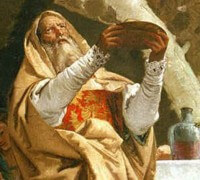 Unfortunately this has sometimes been explained as: one is chosen and the other is not. But this is about the whole community of believers, just as Isaiah referred to all of Israel. And then it becomes clear that we are not just some Jewish sect, but it was always Gods intention for us to be His children. Just as Christ is our High Priest in the order of Melchizedek, which is older than the line of Aaron, so we are also a people of God chosen even before the people of Israel was chosen, without, by the way, implying that one is more important or less important than the other.
Unfortunately this has sometimes been explained as: one is chosen and the other is not. But this is about the whole community of believers, just as Isaiah referred to all of Israel. And then it becomes clear that we are not just some Jewish sect, but it was always Gods intention for us to be His children. Just as Christ is our High Priest in the order of Melchizedek, which is older than the line of Aaron, so we are also a people of God chosen even before the people of Israel was chosen, without, by the way, implying that one is more important or less important than the other.
Uncleanness is also defined differently in the NT. It no longer relates to your origin, your being different, or not meeting certain outward ritual criteria. We defile ourselves if we cannot control ourselves, if we are a slave to someone or something. I am also reminded of Jesus’ statement about what “comes out of the mouth” (our words) and makes us unclean. This is about everything that keeps us trapped, or with which we sabotage ourselves, while Christ wants us to be free of those things.
I like it when Isaiah says: “My people have been taken away for nothing “. Slavery ultimately yields nothing, it is a kind of sham economy, which collapses when the inevitable liberation comes. The same applies to our addictions. That is why it is the calling of those who are liberated to offer others that liberation. In Mark 6 we read that Jesus gives the twelve power over the unclean spirits. I have no doubts that, once more, they only really got that power when they themselves were freed from their sense of impotence. We must believe, as Paul says, that we are indeed heirs of the promise. And if we are heirs, there is really something for us to choose, because God, like David, has not predestined every detail.
Not submitting to anything
And now I come back to God’s counsel not to appoint a king. Why was that, actually?
I think it was because God desires to grant everyone the same freedom to make choices and to take responsibility. Perhaps God is more democratic than many have understood and proclaimed. I believe it is no accident when John says in the book of Revelation, even before the accounts of his visions begin, that God has made us kings and priests.
 God always starts our healing by giving back our dignity and voice. The dignity we lost when we sinned, that is to say, when we let ourselves be dominated by evil in one form or another. Paul beautifully summarizes the balance between freedom and responsibility in his letter to the Corinthians (1 Corinthians 6:12): “All things are lawful for me, but I will not allow myself to be brought under the power of anything”, or as it says in another translation, “I will not let myself be dominated by anything”.
God always starts our healing by giving back our dignity and voice. The dignity we lost when we sinned, that is to say, when we let ourselves be dominated by evil in one form or another. Paul beautifully summarizes the balance between freedom and responsibility in his letter to the Corinthians (1 Corinthians 6:12): “All things are lawful for me, but I will not allow myself to be brought under the power of anything”, or as it says in another translation, “I will not let myself be dominated by anything”.
In other words, if we invent something, think up a philosophy or establish an organization, and then become slaves of the same invention, philosophy or organization, then we have compromised ourselves and/or others. The same applies if we put our trust in “holy cows”. John Powell once said: “In order to live fully we must learn to use things and to love people, instead of loving things and using people”. Among these things we love are often rigid views. If I can not use my views to serve my fellow man, what good do they actually accomplish? Let us then shake off the dust and courageously set course to a new Jerusalem.
This post is also available in: Dutch

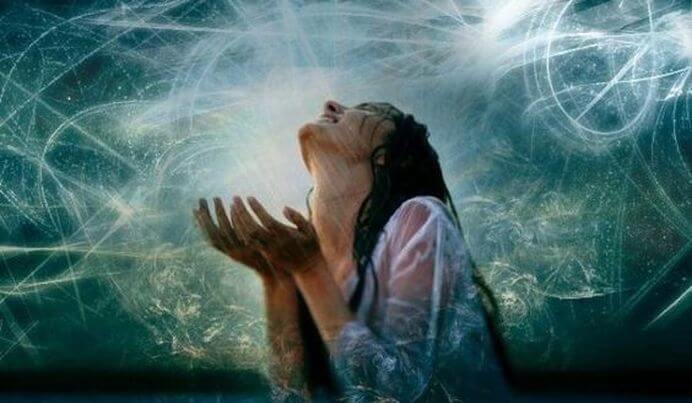
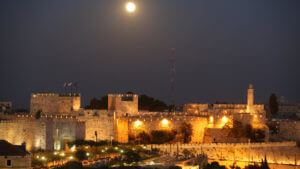
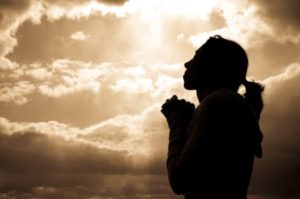

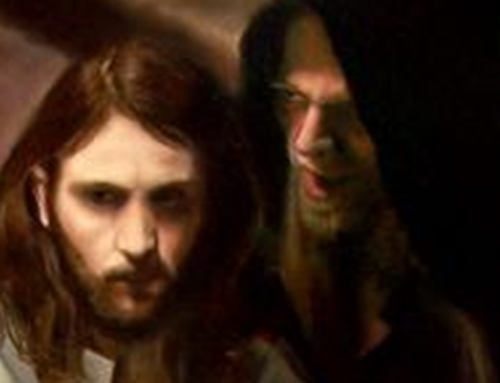

Leave A Comment